
‘I’ve been given a second chance’
Paul King didn’t think much about heart disease, until a shocking diagnosis changed his life
Chapter 1 Something’s not right
After open heart surgery in May 2021, Paul King woke up to surprising news in the intensive care unit at St. Mary’s General Hospital in Kitchener, Ont. His operation had taken seven hours — three more than planned. And his surgeon told him the team did a total of seven bypasses to fix his blocked arteries.
“Is that a record?” Paul asked, stunned.
The diagnosis and its severity shocked Paul, a 58-year-old software sales and marketing consultant from Owen Sound, Ont. The COVID-19 pandemic added uncertainty and extra challenges during his diagnosis and treatment.
It was November 2020 when Paul first suspected something was wrong. He got more winded than usual during his weekly hockey game. Then, on a hike with his wife, Susan, he felt tightness in his chest and pain in one arm after climbing a hill. “I got out my phone and started Googling,” he recalls.
He made an appointment with his doctor, who ran blood tests and booked him for a stress test. That revealed possible problems with his heart. Waiting for a second stress test, Paul wasn’t overly worried. “I expected to rock the treadmill and get sent home with maybe a prescription.”
Thanks to a cancellation, he got the test in two weeks instead of the scheduled two months. Suddenly it was clear Paul would need more than a prescription.
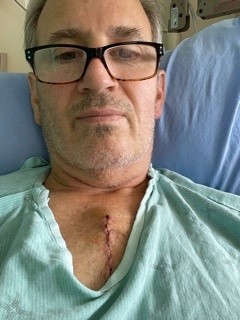
Recovering after his surgery, Paul was scared of the pandemic risk every day he was in hospital.
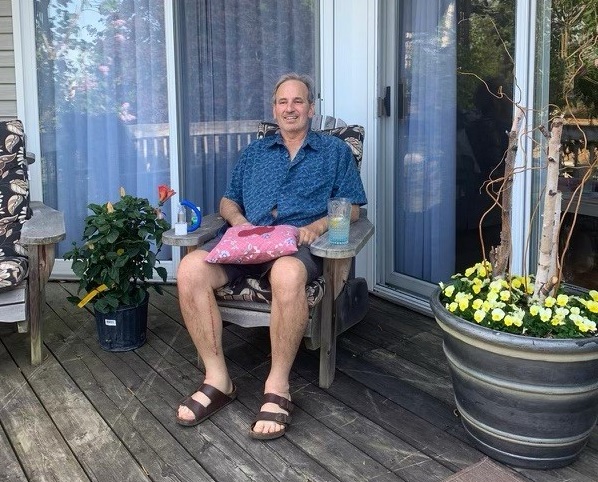
Paul’s initial recovery was rough, but he was able to go home after following the medical team’s advice.
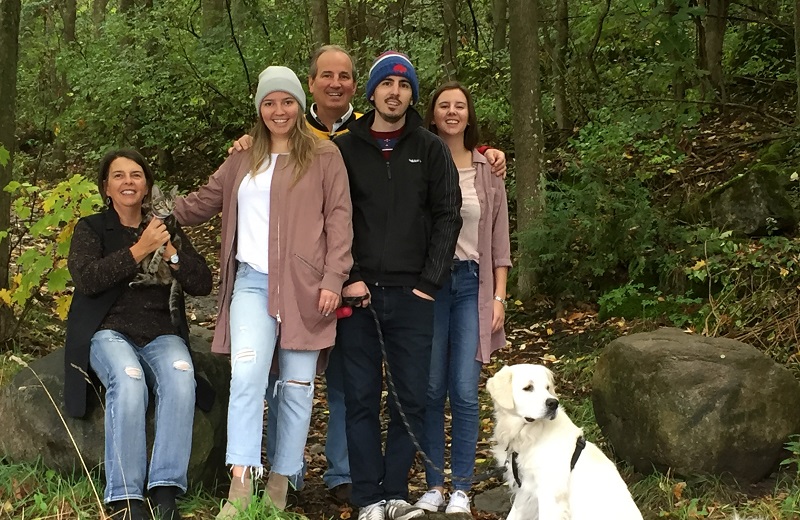
Paul with his family.
Chapter 2 A shocking diagnosis
In March, an angiogram showed a few serious blockages in the arteries to Paul’s heart — including the left anterior descending artery or LAD. He would need bypass surgery. And only then would the full extent of his blockages become clear.
Paul learned the LAD is sometimes called the “widowmaker” because blockages in that artery can lead to fatal heart attacks or permanent damage. “I was flabbergasted and shocked,” he recalls. He had been playing hockey just a week before.
Like Paul, his hockey pals had given little thought to heart disease. They didn’t understand what a bypass was or how much family history played a role in heart disease. Paul’s uncle had died young from heart disease, which he’d never thought about before.
Now he could think about little else. His daughter Chelsea, middle of his three children, had recently become engaged. He wanted to be there to walk her down the aisle.
As the wait for surgery dragged on, he checked messages constantly and wondered if a heart attack would happen before the operation. Ontario was in the third wave of the pandemic and his procedure got rescheduled three times.
Finally, in mid-May, he got a call: “Can you come tomorrow?”
Chapter 3 Bypass and beyond
Paul checked into the hospital while Susan waited at a nearby hotel — increasingly anxious for news as the hours went by. Finally out of surgery, Paul was wheeled to a makeshift ICU for recovery, since the cardiac ICU had been taken over for COVID patients.
Paul focused on doing exactly what his medical team told him, and soon he was able to go home.
As he recovered over the summer, Paul started walking and feeling better. He was diligent doing the exercises prescribed by his medical team. But once again, COVID-19 meant he had to wait, this time for access to a cardiac rehabilitation program.
By late summer Paul had resumed hiking and cycling and was looking forward to his daughter’s wedding. Finally, in late September 2021, he started a 12-week virtual cardiac rehab program.
He’s grateful for the care that saved him from a heart attack — especially during a time when the health system was overburdened.
Within the first three years after surgery, he’s had many conversations about heart health and initial symptoms with peers and their loved ones. “There’s an education that needs to happen for my demographic. It’s crazy how many men have heart issues.”
Now, Paul lives an active life. He tries not to brag that he’s more active than his kids. “We walked the Camino de Santiago this past year, Susan and I.” Tackling 25 km a day felt hard at first, but somehow got easier. The couple also did a 100 km biking trail in Quebec. “Just when you think you can’t do it, you do a little more.”
Paul uses his apple watch religiously — tracking his beats and steps to challenge himself. He’s relieved to have more movement in his days than ever before. Having spent the last 15 or more years sitting at a desk and staring at a screen, he craves the outdoors and plays pickleball and hockey in his retirement.
He has annual check-ups with his cardiologists where he steps on a treadmill, gets his heart pumping and tries to “beat last year’s record.” Paul has learned the importance of staying engaged in his health journey, adjusting his expectations and preparing for appointments. “It’s your health — you lead the charge.”
Paul’s family has been expanding. His eldest, Zack, got married this past May. As for his middle daughter, Chelsea — not only did he get to walk her down the aisle, he also got to hold his first grandchild: a girl. “Becoming a grandfather has been a dream,” he says with a smile.
“I feel like I’ve been given a second chance,” he says. “And I don’t want to waste it sitting in a beach chair...” He takes a beat, then adds, “Though I’m not opposed to sitting there and soaking it in every once in a while.”

Paul loves hiking and cycling, especially now that he’s retired.

Join the fight to end heart disease and stroke.

Paul loves hiking and cycling, especially now that he’s retired.
Related stories
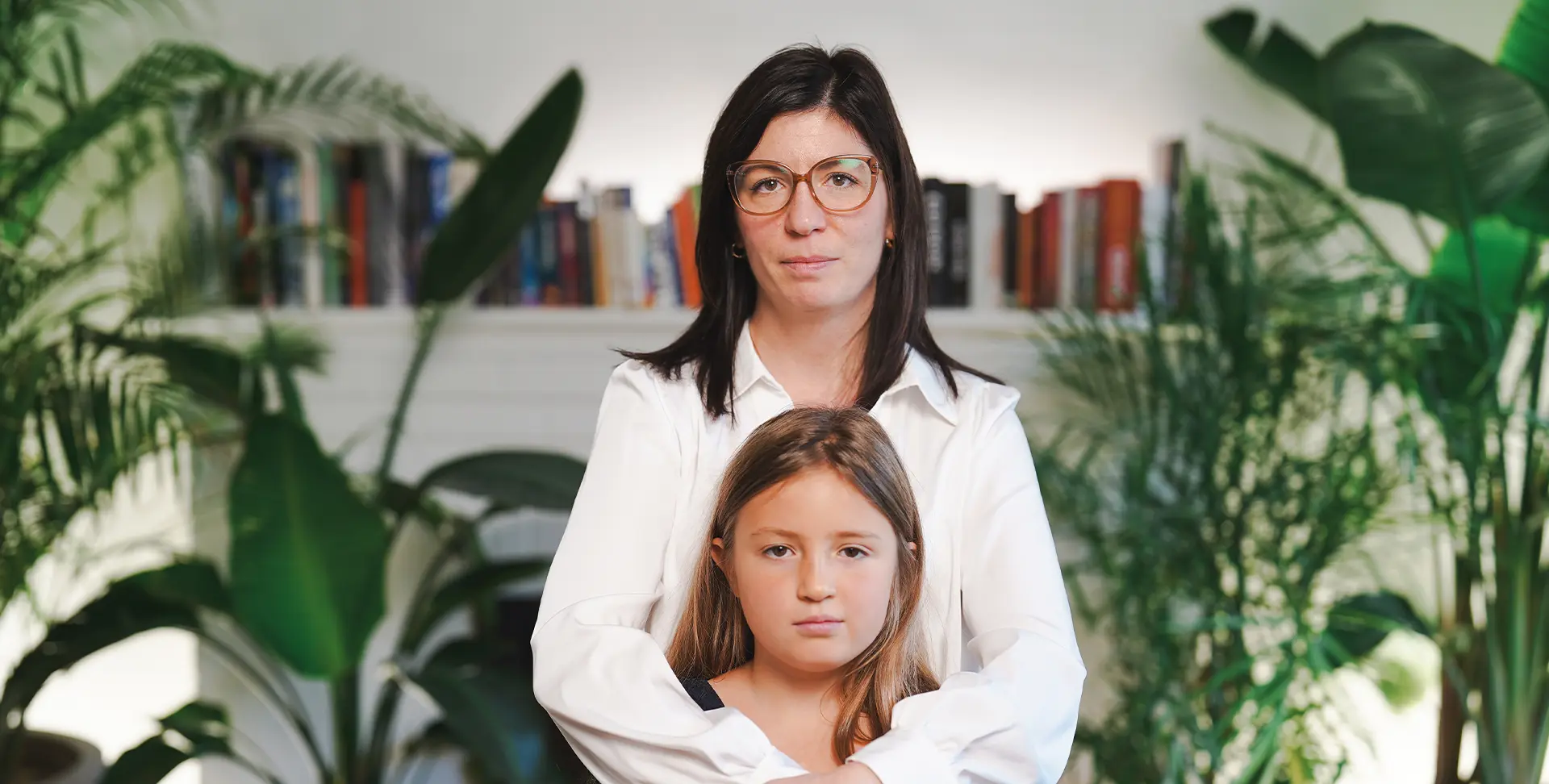
Strength runs in the family
Sophie Bessette’s daughter inherited her heart condition — and her fierce determination to live without limits
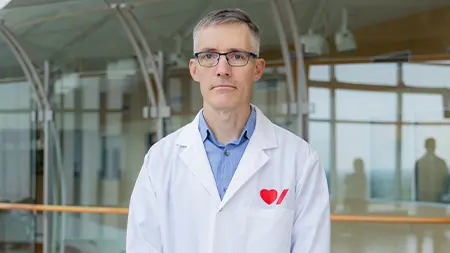
Lifelong care for congenital heart disease patients
Children with congenital heart disease are now growing up. Dr. Andrew Mackie wants to ease their transition to adulthood
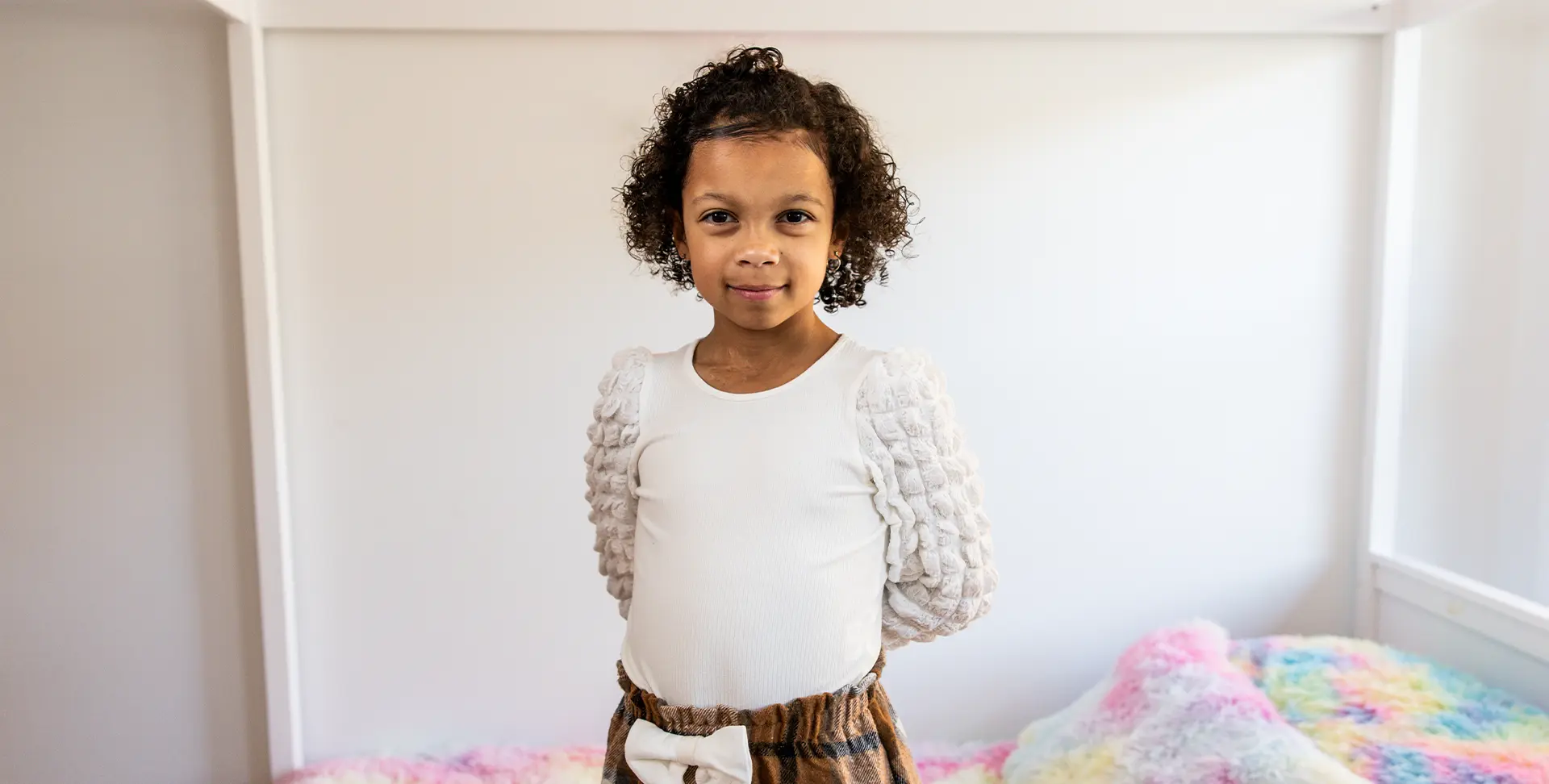
Saving baby Nora
Thanks to a heart transplant at five months, she’s beating congenital heart disease.
